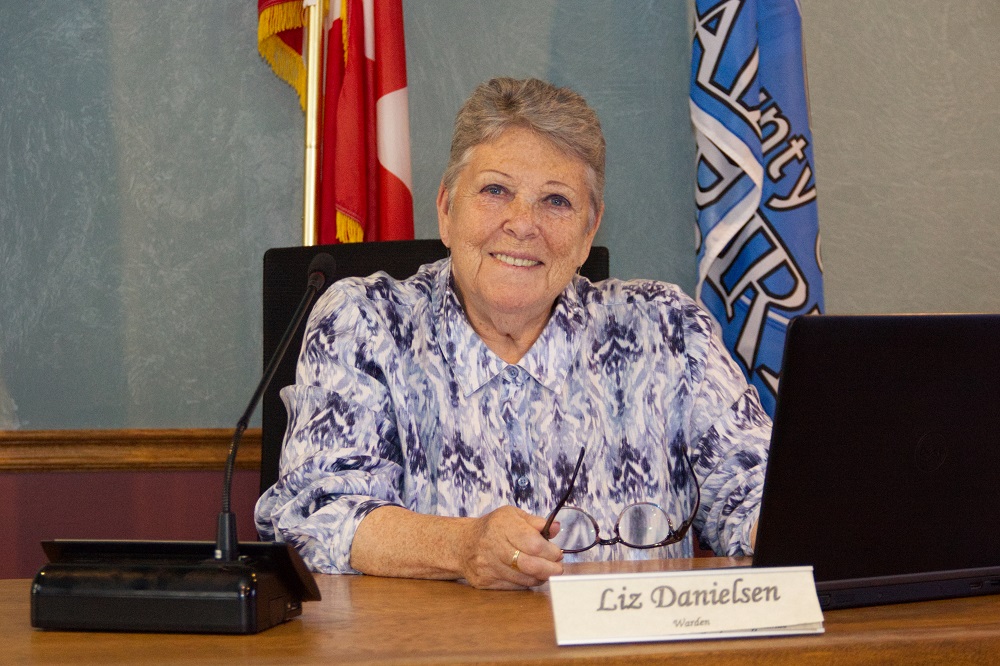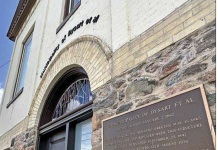County council, at its last meeting, voted to send its short-term rental bylaw to the four lower-tier municipalities for possible adoption.
It’s now up to Algonquin Highlands, Dysart et al, Highlands East and Minden Hills to pass it.
Further, council has directed County staff to work with employees from the four townships to prepare a request for proposals (RFP) for a third-party provider to administer the new rules and regulations, if adopted. It’s hoped municipalities can report on what they think will be required of them when it comes to inspection and enforcement. After all of that, local government will be looking towards setting an implementation date.
The decision came after a lengthy debate in which warden, Liz Danielsen, expressed frustration that it, “looks like we can’t make a decision if our life depends on it.”
Coun. Murray Fearrey also commented, “how come all these other municipalities have done this and we’re so complicated?”
Director of planning, Steve Stone, brought clarified definitions and further refinements of the bylaw to the July 26 meeting. However, he said, “the most critical piece of the bylaw that was changed really reflects council’s interest in allowing for operators to sign up, and basically swear that their establishment is operating in accordance with all of the rules and regulations, so building code, fire code and so on and so forth.
“But there is a notwithstanding clause in the bylaw that allows municipal departments to do their own deep dive… so hold back from issuing a license if they have a concern that they may have heard about or may have seen in their own records as they’re processing applications.”
Stone said the City of Kawartha Lakes had approved a short-term rental bylaw.
County to prepare MAT bylaw
He said they have set a license application date of April 1, 2024. After that date, CKL is capping the number of STRs and putting STR owners on a wait list.
He added the County had received correspondence from two, third party contractors who do short-term rental work on behalf of municipalities in Ontario. They’ve indicated there could be anywhere from 1,500 to 2,000 of them being advertised in the Highlands.
After Coun. Lisa Schell expressed concern with Minden Hills not having enough planning and building department staff, specifically bylaw enforcement, to manage the portfolio, Stone said the third-party providers “can do pretty much everything up until the enforcement – inspection side of things. They can run the permitting side of things. For their fee, they can pretty much do everything, taking the major administration burden away from the municipalities.”
He indicated with a self attestation form, municipalities would not have to inspect all of STRs, perhaps auditing just five per cent every year.
Fearrey said he understood the contractor would do much of the work. “What we’re going to do is what we have to do at the local tier because that’s where the bodies are, if we have to do a fire or building inspection. So, there will be some work there, there’s no question about it, but it’s minimal.” He added, “we’re never going to get this perfect. We’re going to have to amend it as we go along…”
Coun. Walt McKechnie noted third-party providers also monitor compliance issues. They can levy fines, issue demerits and suspend licenses. They are on call for complaints. CAO Mike Rutter noted the contractor can take and upload videos for municipal bylaw staff to review if they cannot attend on a weekend, for example.
Will generate revenue
Rutter, while arguing the townships have to take on the bylaw due to them having paper copies of all relevant documentation, said the licensing fee, “will generate a fairly significant source of income to help you get more staff to do all of the things.”
Coun. Bob Carter reiterated he did not want any tax dollars to go into the program.
During his presentation on a possible municipal accommodation tax, director of economic development, Scott Ovell, said local governments can keep 50 per cent of revenue and apply it anywhere, including to short-term rental program costs.
Carter said one of the most difficult things is “we have no idea how many there are. This is the real crap shoot in all of this.” Fearrey suggested some rentals won’t make the cut.
Carter agreed the County, “can’t make this perfect, it’s a leap of faith, but we all know we need to do this. It’s an issue on so many levels. We’re going to have to figure it out.”
Fearrey said he was prepared to take the bylaw to his council. “We’ve been diddling around with this thing for six months.”
With the MAT tax, council authorized staff to prepare a bylaw for consideration by lower-tier municipalities and put the wheels in motion to set up a municipal accommodation tax association.





